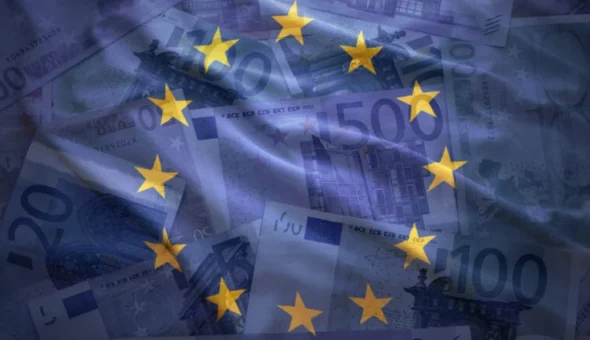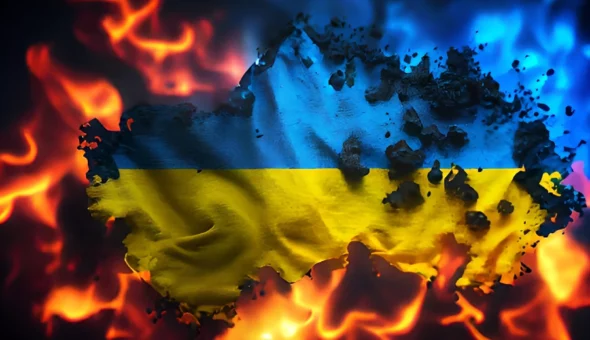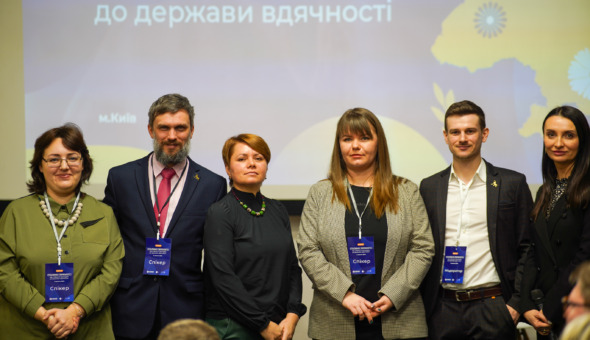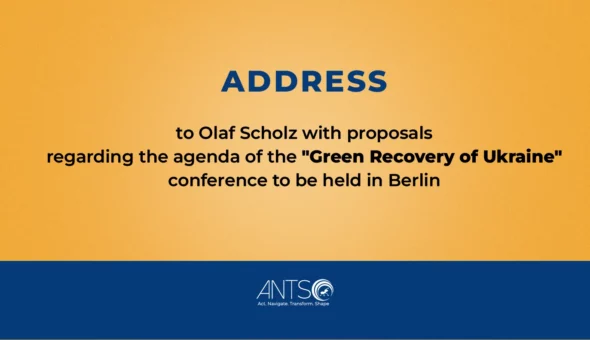
Several weeks have gone since the historic decision of the EU Council, a conference on Ukraine’s restoration was held in Lugano, Switzerland, and the European Union is expanding its dialogue on the new package of sanctions and resuming internal dialogue on EU reform ideas. So what should Ukraine do?
The attainment of candidate status by Ukraine, and therefore a clear emphasis on future EU membership, created a new chapter in relationships with the European Union. Now, for the most part, it is up to Ukraine to determine how quickly and ambitiously we advance toward full membership in the European Union.
«After receiving the status of a candidate country for joining the EU, we moved from the neighborhood policy to the enlargement policy. These two policies are absolutely and fundamentally different both in terms of ambition and political weight. It is important to understand that precisely the goal of the enlargement policy is to prepare the country as much as possible for further membership in the EU», says Maria Golub, ANTS expert on European integration and bilateral relations between Ukraine and the EU, representative of the International Victory Center of Ukraine.
She emphasizes that, with the granting of candidate status to Ukraine, the EU officially recognized that Ukraine is already considered an integral part of the European political space and, in particular, of the EU single market: with all of the rights and obligations of the European Union’s member states.
“And the European side has already begun preparing and studying how Ukraine’s potential entrance will influence the European Union’s single market.” As a result, it is now critical for Ukraine to participate in these negotiations, preserving and defending our national interests, especially in light of the fact that the European Union is ready to assist its future members technically, financially, and politically,” the expert said. With the status of a candidate and an effective discourse on post-war reconstruction, Ukraine can count on considerable financial resources dedicated to the military, economic, and energy areas – and it is in our interests to demonstrate progress on crucial reforms and obtain even more such aid.”
What will speed up the commencement of membership negotiations?
Quick and timely implementation of all seven items provided by the European Commission for Ukraine to implement before proceeding to the next stage, which is the start of membership negotiations.
“These are critical reforms that we urgently require because they will provide significance to all of our initiatives, including country transformation, reconstruction, and the establishment of an investment-attractive environment.” What’s more, dynamic success in these seven areas, together with the systematic implementation of Ukraine’s Association Agreement with the EU, will assist to shape a positive image of a country that is serious about its geopolitical choice – European integration. It is also critical to prepare and publish a distinct schedule for each item. This will allow us to track and demonstrate significant progress even before the next European Commission report, which is due out this autumn. “Implementation should take place in a clear and continuous discussion with the EU, with the participation of all relevant institutions, including the civil and expert environment,” Maria Holub believes. – I’d like to emphasize once more that all of these changes, particularly in the areas of anti-corruption reform and the rule of law, are vital for us as well, because they will help to strengthen our institutions and our ability to withstand Russian aggression.
Successful progress on these points and full harmonization of our legislation with European practices will make Ukraine more attractive for investment, which is especially relevant for post-war reconstruction. And in addition, this large-scale foreign investment will contribute to an increased dialogue on strengthening the security of Ukraine. This is logical: both parties will want effective security guarantees. That is why, as part of the healing dialogue, we should include the military and professionals in this field. So there was also their perspective in the discussion about the potential model and techniques of repairing the country, both for post-war reconstruction and for the restoration of essential infrastructure. After all, the military will most likely look at this process from a different angle. And their opinion should be taken into account when developing the part about providing security guarantees.”
We can begin membership negotiations during the preparations for the “Ukraine-EU” summit next year, assuming unambiguous execution and development along the European integration route of reforms..
And it is encouraging for us that the Czech Republic and Sweden, both of which are friendly to us, will soon chair over the EU Council. As a result, it is now essential to spend more in Ukraine-EU bilateral relations. Finally, Ukraine must clearly illustrate how it differs from other candidates and how it can truly strengthen the European Union even more. I am very impressed by Ukraine’s approach of active participation in the joint development of economic, security, digital, and energy policies, which will already be worked out during the “internal reform of the EU,” a process that has already begun and is actively discussed by the community’s member countries.
“Ukraine has a specific situation: now our European integration will be clearly tied to efforts to win on the battlefield and to actions for reconstruction and restoration. Accordingly, all steps to modernize the country should take place in the context of European integration processes,” the expert emphasizes.
Key points on which Ukraine should now concentrate:
1. European integration and modernization should serve as the foundation for economic recovery. According to this principle, the country’s leadership should establish a dialogue at the world political level, as well as connect with citizens within the country on a regular basis.
2. Transparency and efficiency in Recovery Plan matters. Many issues are being raised about Ukraine’s ability to successfully manage cash and plan truly realistic projects. As a result, it is vital to demonstrate institutional capacity to work with massive multibillion-dollar reconstruction monies. The same is true for Ukraine’s ability to make use of the finances and possibilities that have become available to us as a result of our candidate status. It is in Ukraine’s best interests to offer a clear, logical, and transparent model of money use, as well as effective procurement procedures that will be carried out within the scope of the recovery program. And together with the EU, agree not only on priorities, but also on income. At the expense of which will be filled that huge basket that will go to recovery.
3. Balance of grants and loans. This message must be expressed clearly. Most likely, the “lion’s share” of the basket of recovery will be credit, and we need to understand what to provide them now. This requires, in particular, an intensification of the discourse on the confiscation of Russian assets and the transfer of these cash for our reconstruction. This may serve as an extra incentive for the EU, as these monies may serve as a guarantee for the repayment of their loans.
4. Strengthening the European integration block and improving the public administration model – taking into consideration the objectives and enormous volume of work required for EU membership advancement. Our ministries and other agencies must be able to not only propose legislation on time, but also implement it. Even now, it is vital to understand how to effectively connect with EU partners and to integrate into their massive bureaucratic system. And, given the backdrop of recovery and the fact that European integration is now 90% about internal reforms, such a work model should be established at the level of the government, which would clearly coordinate economic, European integration, and regional policies.
5. Advocacy on all fronts. We must advocate on all fronts, involving major politicians and members of international organizations and institutions, for example. And they should all speak out in support of Ukraine “with one voice.” This will help us keep Ukraine in the spotlight when it comes time to strengthen negotiations on finances, financial aid, the start of negotiations on entering the EU, and so on. In short, a lot more work needs to be done in Ukraine to make more friends and less doubters. This can be achieved through good communication and work within the country. In addition to working in key capitals and with European institutions, it is important to strengthen engagement with the Venice Commission, GRECO, the European Court of Auditors, and European analytical centers, business associations, and industrial chambers.



